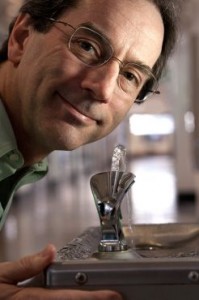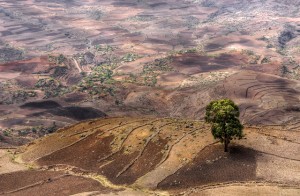World Water and Food Security: What’s MIT Doing about It?
-
-
slice.mit.edu
Filed Under
Recommended
The new lab will be a major component of a campuswide initiative to promote transformative, cross-disciplinary research relating to the environment set to launch this fall.
“From this core, the initiative will build outward to engage a range of connected fields, from cities to oceans, from engineering to economics, from ecosystems to energy,” MIT President L. Rafael Reif said in a letter to the MIT community.
Established by a gift from Mohammed Abdul Latif Jameel ‘78 and named in honor of his late father, the Abdul Latif Jameel World Water and Food Security Lab (J-WAFS) lab will support research in multiple disciplines including sustainable design and building, climate and hydrology, engineering technology, policy, and economics.

MIT professor of mechanical engineering John Lienhard has been selected to lead J-WAFS. Lienhard is currently director of the Center for Clean Water and Clean Energy at MIT and KFUPM and a leader in desalinization research.
While J-WAFS is not the first lab on campus focused on sustainability, Lienhard says J-WAFS has a different mission and perspective.
“We will be using our best assessments of regional drivers of water and food scarcity in conjunction with MIT’s strengths in engineering, science, urban planning, social science and management, to meet the growing demand for food and water in a rapidly changing world,” he says.
J-WAFS will also engage other labs by challenging faculty, students, and researchers to solve specific sustainability issues.
“We will be able to frame broad, high-level questions in science and engineering and then coordinate the efforts of MIT's faculty, labs, and centers to work towards solutions for water and food security that are environmentally benign and energy-efficient,” Lienhard told MIT News.
Senior lecturer Amy Smith '84, MEng '95, SM '95, is optimistic about J-WAFS’s future. As founder of D-Lab, which works to build “a global network of innovators to design and disseminate technologies that meaningfully improve the lives of people living in poverty,” Smith works closely with issues related to shortages of food and water.
“D-Lab has learned a lot about the fundamental issues of water and food security. My hope is that we could leverage D-Lab’s strength in community-based design to shape the direction of the research agenda and identify projects where research at the J-WAFS lab would lead to innovative solutions.”
Smith is also familiar with Jameel, as a previous gift of his supported D-Lab’s Scale-Ups program, which brings poverty-alleviating technologies to the developing world.
She says, “He has helped to shape the impact that MIT is having on the world, and this new lab brings a new depth to that impact.”
J-WAFS is set to begin work in September 2014.








